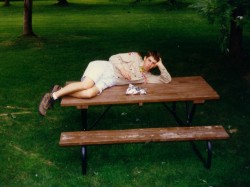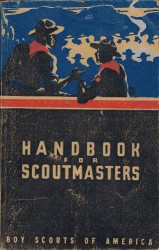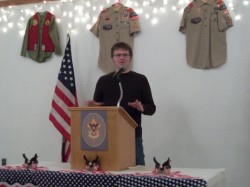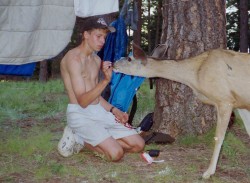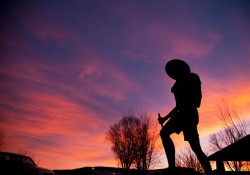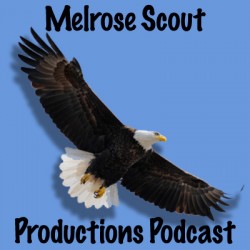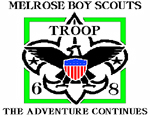Mike L’s Scouting Memories
stevejb68 on June 26, 2013 in Eagle, Leadership, Lessons, News No Comments »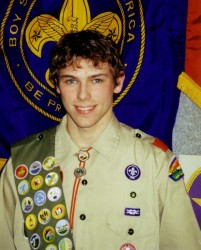 (The following article was written by Mike Linnemann, an alumni of Melrose Boy Scout Troop 68. Mike was a member of the troop from 1997 to 2003. He earned the rank of Eagle Scout. It is the fifth of a series of guest articles written by former members of Troop 68.)
(The following article was written by Mike Linnemann, an alumni of Melrose Boy Scout Troop 68. Mike was a member of the troop from 1997 to 2003. He earned the rank of Eagle Scout. It is the fifth of a series of guest articles written by former members of Troop 68.)
Scouting: An Investment of Character
By Mike Linnemann
I’m an Eagle Scout and my Scouting experience, like my present tense designation, has not ceased.
Spending over six years as a teenager was nothing short of transformative during those tumultuous hormonally unbalanced years. I look back at my experience as a Boy Scout not as one of developing skills from merit badges, learning synonyms to describe myself from the Scout Law and living up to a higher ideal. I think of my time as learning experiences in innovative thinking.
At the time, I went through my advancement like most boys. Upon achieving one rank, the next would fall in line. Not unlike a job progression in a career, a linear path was always laid out before me. While along this journey, a seminal moment made me pause.
Upon reaching the rank of Eagle Scout, I briefly examined how this feat affected my future. While doing so, it felt like a moment. Looking back, I stopped my advancement as soon as I realized. I earned zero palms and only a few mere more merit badges with my remaining two years. I sacrificed my drive to understand the greater situation. I think similar aspects happen when apprentices, students really, achieve most milestones. I thought of my individual experiences while in my troop very rarely. I was in varsity school sports and one goal turned into another. New paths always came from another’s end. At that time, aged sixteen, I had been in the troop for five years and many of my friends had left the troop and I finally became aware of it.
Upon arriving as an eleven year old, I came into my troop with two patrols. Half of my friends were in each Cub Scout den. We decided to keep the dens as patrols. Due to the division, my friends slowly trickled off, along with most of the other members to pursue academic interests or the other short list of rural activities that boys partake in. At age sixteen, finally, I was able to look objectively at our issue. Were we to separate the haves from the have-nots and could I have accepted seeing six to eight people quit immediately? I was aware of the odds at the time. It was a visceral feeling that I knew would benefit me greatly on a personal level, but I would actively be sacrificing others. Advice from other scouts told me what was inevitable, that many would quit before reaching their full Scouting tenure. We made the right choice and I wouldn’t change it.
These aspects of brotherhood aren’t shown, nor discussed openly. My troop and community taught us life’s rules but also showed how to bend and change that which can negatively affect our lives to benefit the greater community.
While writing this, it’s eye opening to see how much we impacted our local community. I saw “our,” because an individual can only do so much. That is, until I met our gay Scout.
In fact, he is an Eagle Scout and wasn’t “out” at the time. He was a shining example of what a teenage citizen means and my community rallied around that ideal. He stood out and we knew it. I thought nothing of it at the time but now, I utilize my troop and community’s reaction to this one Scout. The Boy Scouts very recently voted to include gay scouts, relenting on such stringent admission standards for mere boys who just want to be part of something greater than themselves. We all knew of him and it didn’t matter. Looking back, this only illuminates how important troops were to development of model citizens, beacons of good in a community. In our troop, we bent the rules to accommodate.
That’s what I learned from Scouting. Do the right thing, despite what the odds or the negative reactions will invariably be.
Doing the right thing is a part of being prepared, our own Scout motto. There are ideals greater than you or I, or even humanity itself. Our religious basis shuns the self and prepares us for humble lifelong service. Only Eagle Scouts place their honor on their resume but the relevant past that binds Scouts together, whether they reach the pinnacle or mere tenderfoots is real. That stickiness of Scouting usually leaves members if they leave a community, but the character building is with us always.
These minor incidents of compromise, inclusiveness and respectfulness are footnotes in our lives. We think to them when issues arise and I’m happy to think that my foundation is solid. It’s hard to describe to a parent why Scouting builds character and how the intangible parts of Scouting far outweigh any cost.
In short, Scouting is an investment of character and my community invested well.
Mike is an art director in Minneapolis, married and living with his three dachshunds.
